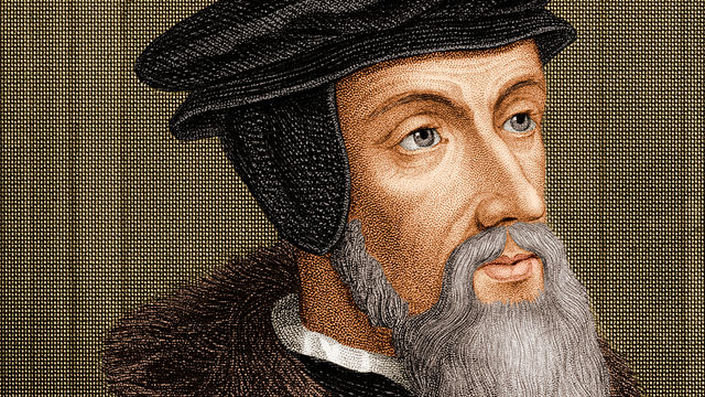|
Wecome to Logia, the personal blog of Paul Hartwig. Reflections and resources to enhance understanding of what God has revealed of himself in Scripture.
|
|
Like it or not, John Calvin is here to say. He is one of those few persons who have left their own stamp on history. Books, seminaries, churches, sons’ names, comic strips, conferences, class room debates and denominational magazines continue to carry Calvin into 2010 and beyond. In 2009 people celebrated 150 years since Charles Darwin’s birth, and 500 years since Calvin’s. Both these men propagated systems of thought that have profoundly influenced Western civilization. The mere mention of the name ‘Calvin’ and ‘Darwin’, will provoke either love or hated, words of infamy or eulogy, but never neutral indifference. We might say (with much oversimplification) that each man went in mutually opposite directions with incredible zeal and fruition. Whilst Darwin penetrated the world of man and of nature, Calvin scrutinized God and His Word.
John Calvin was born in France in 1509. Providence enabled him to start his studies from an early age. Being by temperament driven and decisive, he excelled in his classical, theological and legal fields of study. Then at age 23, whilst in Paris, he experienced a conversion and joined the Protestant cause. “God” he later said, “by a sudden conversion subdued and brought my mind to a teachable frame”. From then on Calvin was mastered by a sense of the Majesty of God and His Word, inspiring an unreserved surrender of himself in every way. In a unique way providence, natural temperament, intellectual rigour and spiritual devotion converged and were thenceforth directed to the rebuilding of the Church on its true biblical foundation. As someone has said, he was able to take the Protestant mob, and turn it into an army. My first impression of Calvin was of a man who limited God’s love to a few, who ruled Geneva with the iron fist of a dictator, being of a stern, cold and marble-like demeanour. However, though I could justify leaving John Calvin on the shelf of history, I could not do that with Romans chapter 9. After a while I came ‘kicking and screaming’ to the conclusion that the only faithful reading of that chapter was the traditional ‘Calvinistic’ one. Since then, I began a personal reassessment of the famous Genevan Reformer. I realized that prejudice, caricature and second hand opinions have prevented many from appreciating his huge contribution to both theology and the church. This does not mean that we must slavishly follow the reformer in every way as some seem to do. Rather, we should critically appreciate his significance as one whose writings so closely approximated the body of truth given for us in the Scriptures. Will John Calvin always be a part of Christian theology? I believe he will be. The comprehensive and biblical nature of his writings is unique. His sense of the Majesty and Glory of God in all things remains catalytic for spiritual reformation. His self-immolation for the cause of the Lord and His church is heroic. His stand point is so clearly opposed to the humanizing tendency of the world and human nature. His zeal to purge the church of foreign elements and to establish her strictly upon the foundation of biblical revelation will always be an ongoing principle in the Body of Christ. So, I challenge you to get beyond the accretions of historical prejudice. Separate the 16th century form of his writings and appreciate the quality of his content. Disagree with him, agree with him. Go to the primary sources of his writings. Read his Institutes of the Christian Religion and his Commentaries. Then I’m sure you will understand why 500 years later we are still talking about John Calvin. “Doctrine is not an affair of the tongue, but of the life; is not apprehended by the intellect and memory alone… but is received only when it possesses the whole soul, and finds its seat in the innermost recesses of the heart” (from The Institutes: Book 3:Chapter 6)
0 Comments
|
Categories
All
Archives
May 2023
|


